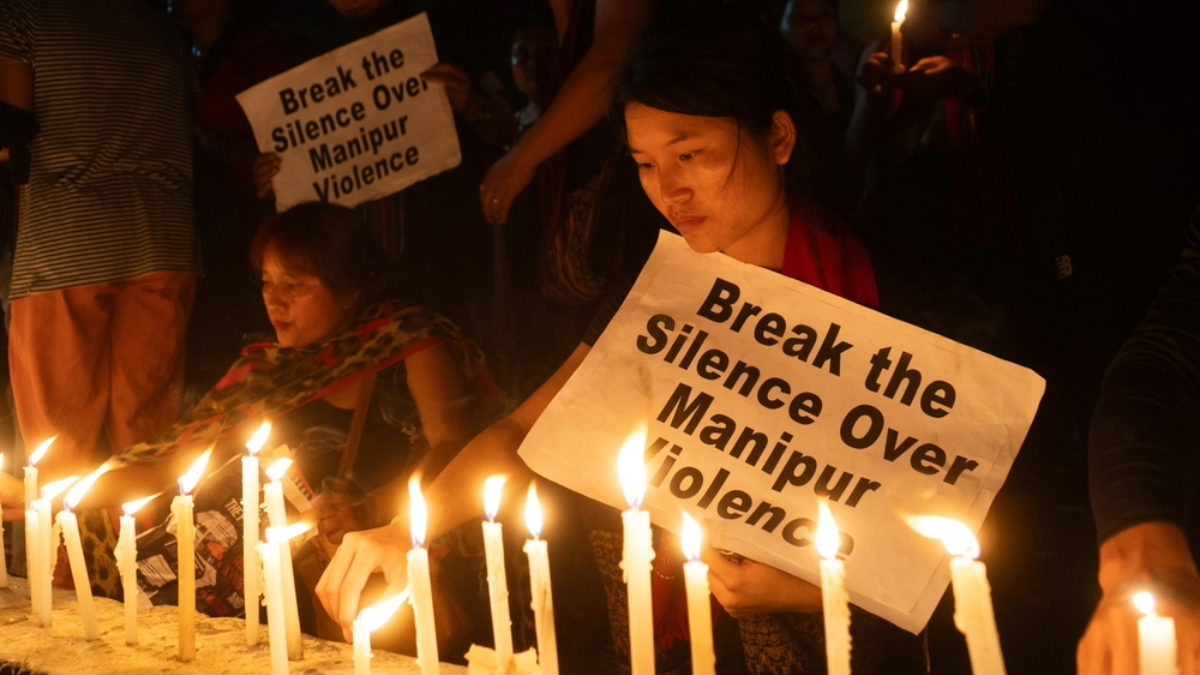Democracy Dimmed: Internet Shutdowns in India and Elections
Neeti Biyani / May 31, 2024
Demonstrators carry out a candle light protest over the sexual assault case of two women in Manipur, on July 26, 2023 in Guwahati, India.
The ongoing general elections in India, which will deliver a result on June 4, are a spectacle as almost a billion people cast their vote to elect their representatives over the last few weeks. As India designates 543 legislators, the country’s Prime Minister, and its national vision for the next five years, billions of people are at risk of Internet shutdowns during national elections across the world, and the stakes for democracy are higher than ever.
Internet shutdowns in India and their impact
The Internet is the people’s medium. It belongs to everyone and no one at the same time. It works efficiently because no single entity controls it; anyone can choose to connect to it, and everyone can benefit from the opportunities it presents. It is a vital resource for information, communication, and human connection and has played a pivotal role in fostering India’s economic growth. With India possessing 81% Internet network coverage and mobile connectivity of a staggering 78%, the government is making a credible effort towards digital inclusion and enhancing Internet accessibility across the country.
However, the issues lie elsewhere. While the Internet is a powerful tool for social progress, it is too often seen as a risky, unreliable place with harmful actors and false information, and is seen by governments as a threat. Since the beginning of the year, Internet Society’s Pulse tracker, which monitors Internet shutdowns, has recorded 22 intentional Internet disruptions globally. India has the greatest number of shutdowns with 9 tracked, followed by Ethiopia and Senegal.
While shutdowns do not address national, political, and institutional issues, they are particularly damaging during elections, which are the backbone of any democratic nation. On the contrary, they deepen the distrust in the democratic process.
During elections or times of unrest, it is imperative that people can access accurate information in real-time. Without access, people become more distrustful. In Manipur, a state in northeast India, an Internet shutdown left a significant impact by creating a de-facto information blackout about the conflict, leading to the spread of misinformation. The economic impact was also substantial. With Internet services unavailable, residents spoke of being forced to shutter once profitable businesses. For individuals working in the growing e-commerce and service delivery markets, no Internet meant no employment. State health, welfare, and food subsidy programs, many of which are entirely digitized, are also affected, complicating the issue for people displaced by the conflict.
Internet shutdowns: undermining democratic values
Shutdowns prevent people from fully participating in the electoral process. They hinder voters from getting information, engaging in debates, or even getting out to vote. They prevent the media from reporting on developments, undermining the capacity of political parties and candidates to campaign and mobilize voters.
A lesson should be learned from Pakistan, which held a contentious election in February. The 10-hour Internet shutdown in Pakistan on February 8, 2024, during the national elections highlights the critical role of the Internet in democratic processes and daily life. The shutdown, prompted by security concerns, particularly affected mobile Internet users, who make up over 97% of Internet subscribers in the country.
Google Maps misinterpreted the lack of data as road blockages, causing confusion for citizens trying to get to polling stations. The shutdown also hindered communication during emergencies and disrupted app-based transport services, impacting voter turnout and democratic participation. The economic impact was significant, with an estimated loss of nearly $18.5 million in gross domestic product (GDP) during the 10-hour shutdown. This experience serves as a cautionary tale, highlighting the far-reaching consequences of Internet shutdowns during elections.
With governments also embarking on a mission to digitize public service delivery it is essential that the principles underpinning the open, global Internet are upheld and the Internet is freely accessible by everyone. In this crucial year of elections, it is also of utmost importance that the Internet facilitates ideas, debate, and engagement with the democratic process.
This piece was corrected on June 3, 2024 to remove reference to a specific economic cost of the internet shutdown in Manipur.
Authors
